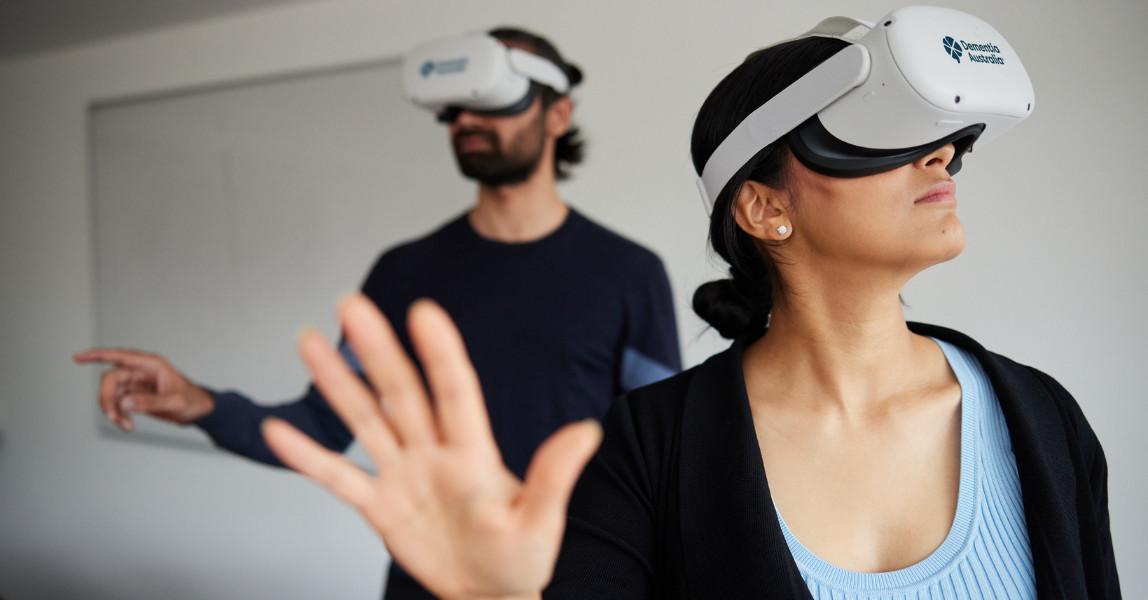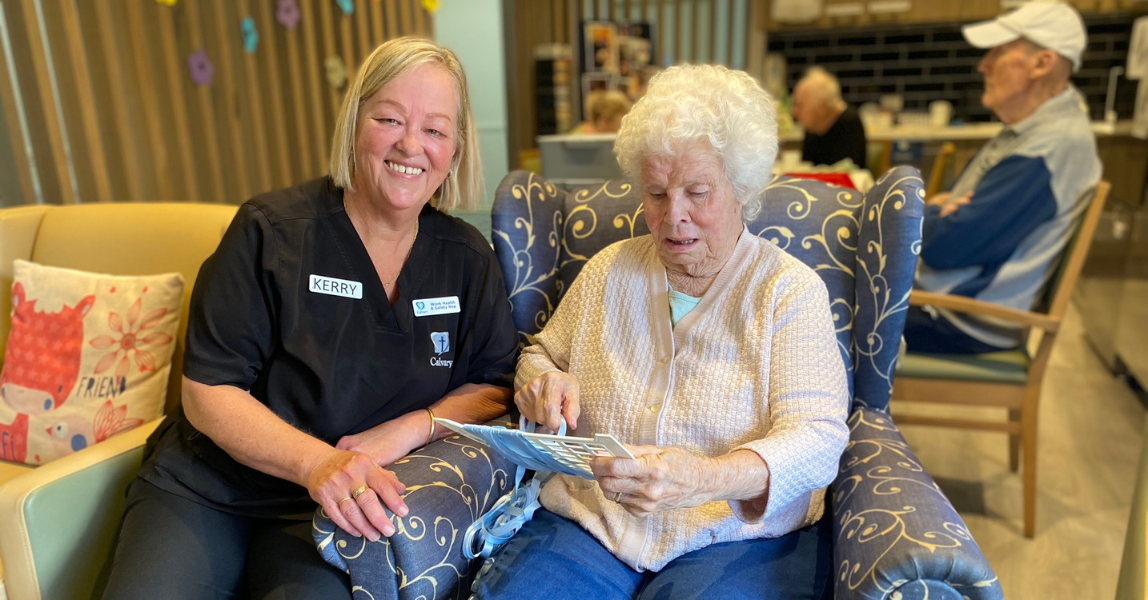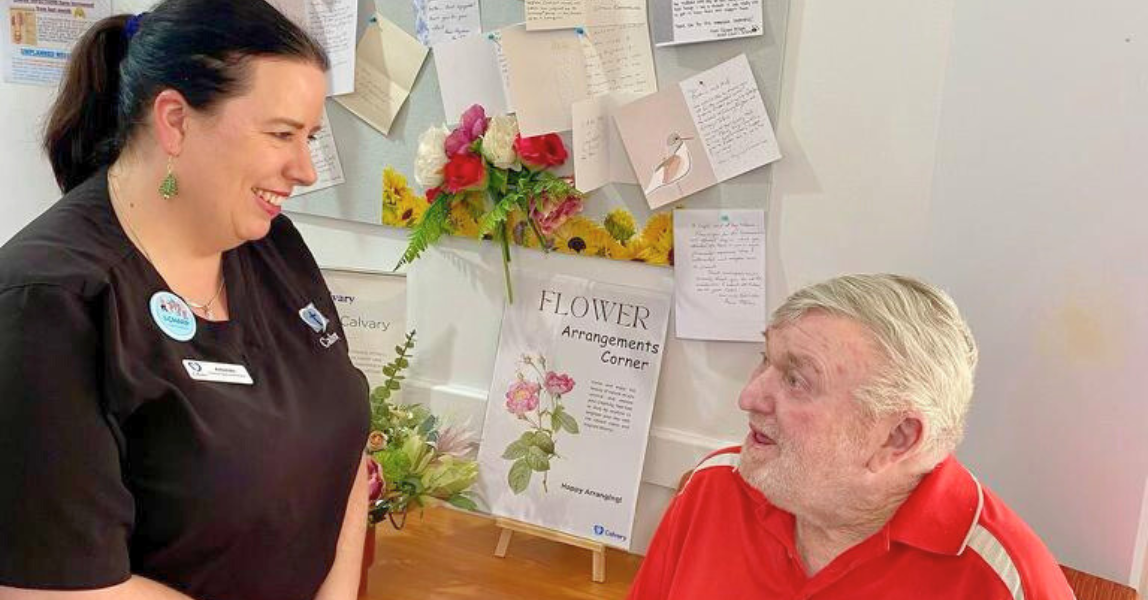Virtual dementia training lets Calvary staff see world through residents’ eyes

Hundreds of care staff in Calvary’s aged care homes across Victoria’s north-west and Surf Coast areas have undergone training using virtual reality to do just that.
The immersive training, provided through Dementia Australia, helps staff develop deeper insight and understanding of the symptoms and impact of dementia, and the needs of people living with dementia, said Jo Skonieczna Masri, Calvary Strategic Operations & Performance – Aged Care.
About 300 Calvary care staff at Calvary homes in Geelong, Surf Coast, Colac, Ballarat, Bendigo, and Sunbury have donned virtual reality goggles in Enabling EDIE and D-Esc workshops over the past six weeks.
Over in South Australia, staff from Calvary’s seven homes in the Adelaide and Riverland area are progressively undertaking similar training, including the three-day Dementia Essentials course.
It is a similar situation for many of Calvary’s 60 aged care homes across the country including in the ACT, Melbourne, Sydney, and the NSW Hunter region.
Why virtual training?
“The training is enhancing our staff’s skills and confidence in caring for their residents, who are living with dementia. As the number of Australians living with the condition rises this will become increasingly important,” Ms Skonieczna Masri said.
Ms Skonieczna Masri said Calvary welcomed specialist training like D-Esc, which Dementia Australia launched in May 2024, to assist frontline and health care professionals de-escalate behavioural emergencies in care settings.
“It teaches strategies to recognise emotional and physical signs of escalation, understand how stress affects a person with dementia, and provide the skills to de-escalate situations.
“Staff can practice their responses to behaviour changes in a controlled and safe simulated environment.”
“Sometimes dementia can change a person’s behaviour,” she said. “They may feel anxious, fearful, distressed, or disoriented.
“How we communicate and respond – whether through words, gestures, movement, or facial expressions – can make a real difference. This sort of experiential training gives our staff the skills and tools they need to be confident to manage the sort of situations that can sometimes arise.”
While the likelihood of developing dementia increases with age, dementia is not an inevitable or normal part of the ageing process. According to the latest Dementia in Australia report (September 2024) from the Australian Institute of Health and Welfare, more than 411,000 Australians are estimated to be living with dementia. That number is projected to more than double by the year 2058.
Dementia care at Calvary
Personal Care Worker at Vonlea Manor at Norlane, in Geelong, Makleen Saksak said virtual reality added a different dimension and gave staff new perspectives.
“I love what I do, and this VR training helps us see and better understand how it is to live and be with dementia,” Ms Saksak said.
“This is already helping us to be more mindful and understanding. It helps us listen to what the residents are saying, pay better attention to what they might be expressing with their body language, and gives us more ideas of how to manage behaviours when we need to.”
Although she already had some knowledge of the disease, registered nurse at Calvary Mirridong in Bendigo, Prativa Ghale said the training opened her eyes to how people living with dementia see their world and what staff can do to help.
“It has certainly broadened my perspective, especially about some of the little things, that can be big things for them, and the approach that we as staff take,” Ms Ghale said.
She cited her new understanding of colour contrast and the big impact it can have in helping people living with dementia navigate their physical surroundings and feel more certain and safer in their space.
“There were some things that I hadn’t thought of before. I think sometimes we make assumptions about what people want or like but that can cause stress or anxiety. We need to put our assumptions aside.”




